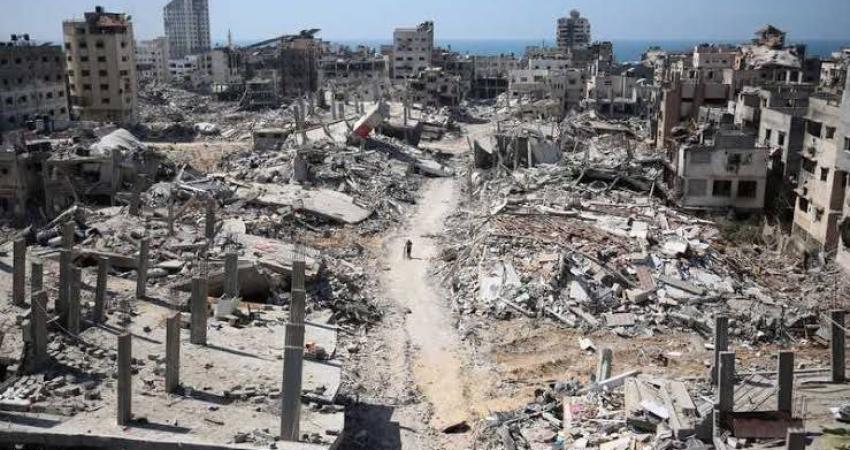Report: Gaza on the brink of total environmental collapse
Al-Khamisa News Network - Gaza

A new report issued by the Wadi Araba Institute for Environmental Studies in Israel warned that the Gaza Strip faces a comprehensive environmental collapse that threatens its ability to recover after nearly two years of the devastating war, noting that water is polluted, agricultural land is destroyed, and the electricity grid is nearly collapsed.
The Independent quoted the report, published by the institute after the announcement of a ceasefire between Israel and the Islamic Resistance Movement (Hamas) mediated by the United States, saying that about 69% of the territory’s infrastructure had been damaged.
Around 80% of agricultural land was also damaged or destroyed, leading to malnutrition rates rising tenfold compared with the situation before the conflict.
The report added that military activities, especially the movement of heavy equipment, inflicted severe damage on fertile soils, undermining Gaza’s ability to produce its own food in the future.
It said Israeli restrictions on coastal waters have made fishing nearly impossible and have killed 120 Palestinian fishermen.
The report noted that 93% of households in the Gaza Strip suffer from water insecurity, with the daily per-person water share no more than 8.4 liters — below the emergency minimum recommended by the World Health Organization.
All wastewater treatment plants have stopped working, causing sewage to flow into the streets and threatening groundwater with contamination and the spread of epidemics, the British newspaper quoted the Israeli institute’s report as saying.
The report called for a phased strategy to rebuild Gaza led by the local community, including creating independent networks for water, energy and agriculture, and embedding concepts of climate resilience and shared resource governance.
According to the report, the shutdown of treatment plants forced residents to discharge wastewater into temporary ponds that threaten to flood into streets and homes, and could seep into the shared coastal groundwater — the main water source in the Strip.
Electricity generation capacity has also fallen by more than 80%, with outages lasting up to 22 hours a day and near-total reliance on diesel generators to carry out relief operations.
The report called again for a phased reconstruction strategy led by the local community, including creating independent networks for water, energy and agriculture, and embedding concepts of climate resilience and shared resource governance.
The report’s authors said environmental recovery must be an essential part of reconstruction, warning that ignoring it will keep Gaza trapped in a cycle of endless crises.






